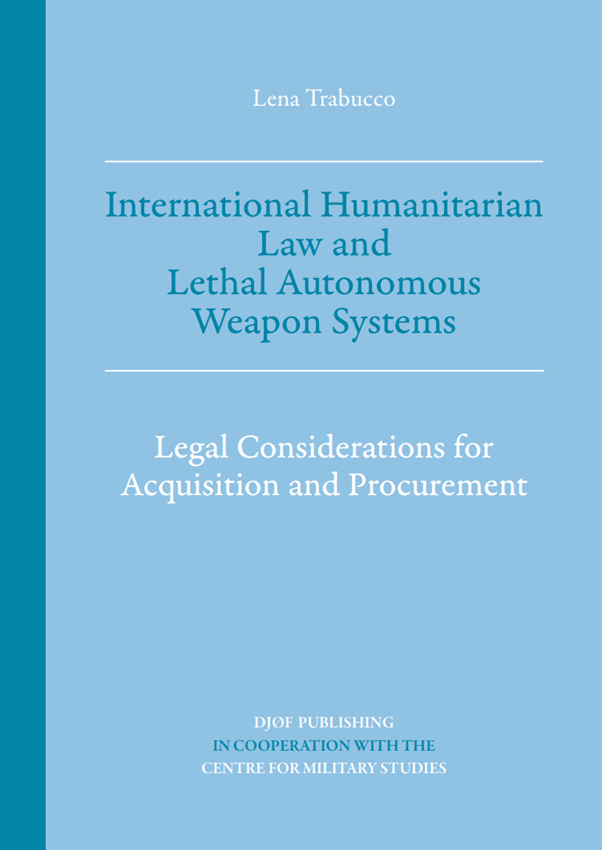International Humanitarian Law and Lethal Autonomous Weapon Systems
The accelerated pace of artificial intelligence (AI) innovation, coupled with increasingly practical military applications, makes it likely that AI will play a prominent role in future warfare. The time is ripe for Danish policymakers to explore the opportunities available to the Danish Armed Forces as the promise and prominence of AI—and especially its weaponization—becomes central to discussions of future warfare. Unlike core Danish allies, Denmark has largely been silent regarding autonomous weapon systems and has not offered a policy position for future implementation or use. This CMS-report "International Humanitarian Law and Lethal Autonomous Weapon Systems” aims to detail the legal challenges for Danish acquisition and procurement stakeholders in the context of lethal autonomous weapon systems (LAWS). The report is authored by Lena Trabucco (CMS), and it is published in cooperation with DJØF Publishing.
Two legal issues
The report argues that Danish defense and legal stakeholders should consider two legal issues. The first is the nature of LAWS technology under the requirements of IHL. The analysis considers three major features of autonomous technology—AI transparency, machine predictability, and algorithmic bias—and details how they can complicate compliance with the IHL principles of distinction, proportionality, and precaution.
The second legal issue examines how responsibility can be divided and attributed to the multiple actors across the lifecycle of the weapon system, including direct considerations for acquisition and procurement officials. This section details the international legal responsibility frameworks, including state responsibility, individual criminal responsibility, and corporate responsibility through the risks of strategic litigation for civilian firms as a potential barrier to defense collaboration and subsequent acquisition.
Recommendations
The report gives five recommendations, which can help to guide future deliberations and planning, If and when Denmark decides to acquire lethal autonomous weapon. The recommendations are thus;
- Formulate policy.
- Encourage inter-agency coordination.
- Restructure TEVV procurement.
- Encourage joint acquisition/collaboration of LAWS through project development.
- Mitigate strategic litigation risks
Download the report: "International Humanitarian Law and Lethal Autonomous Weapon Systems".

